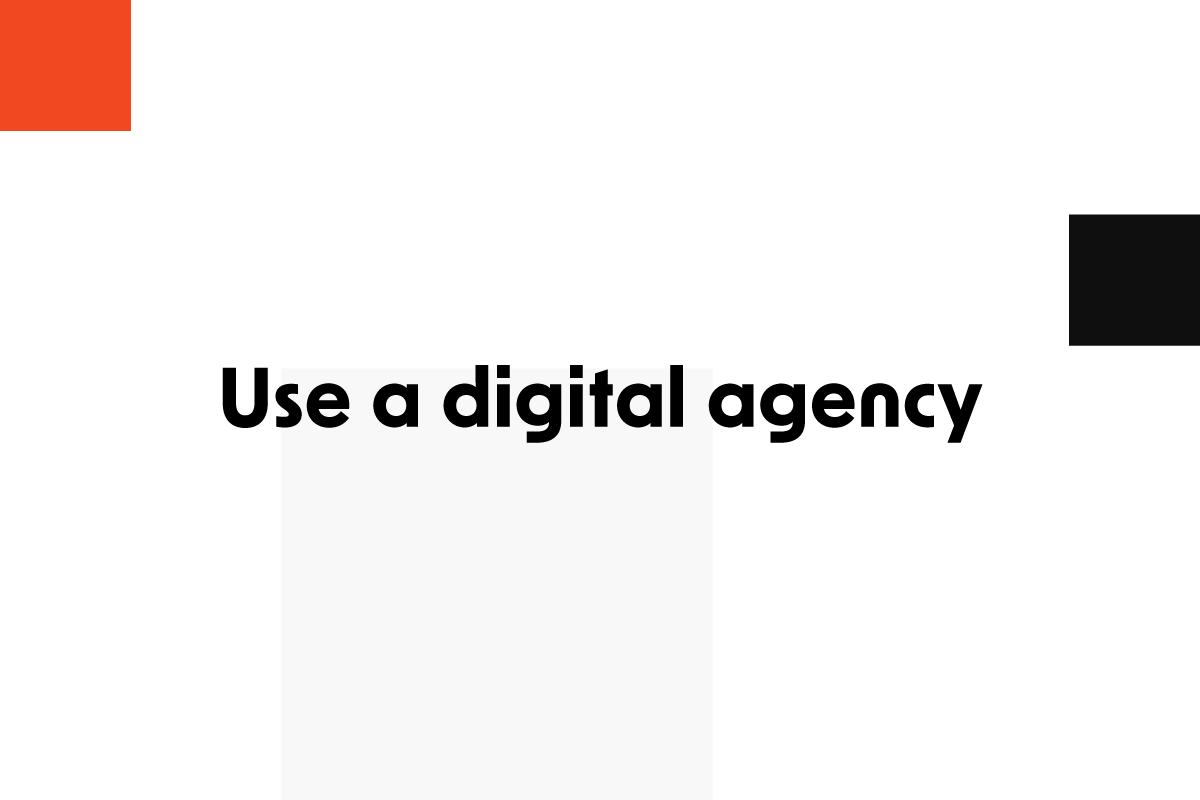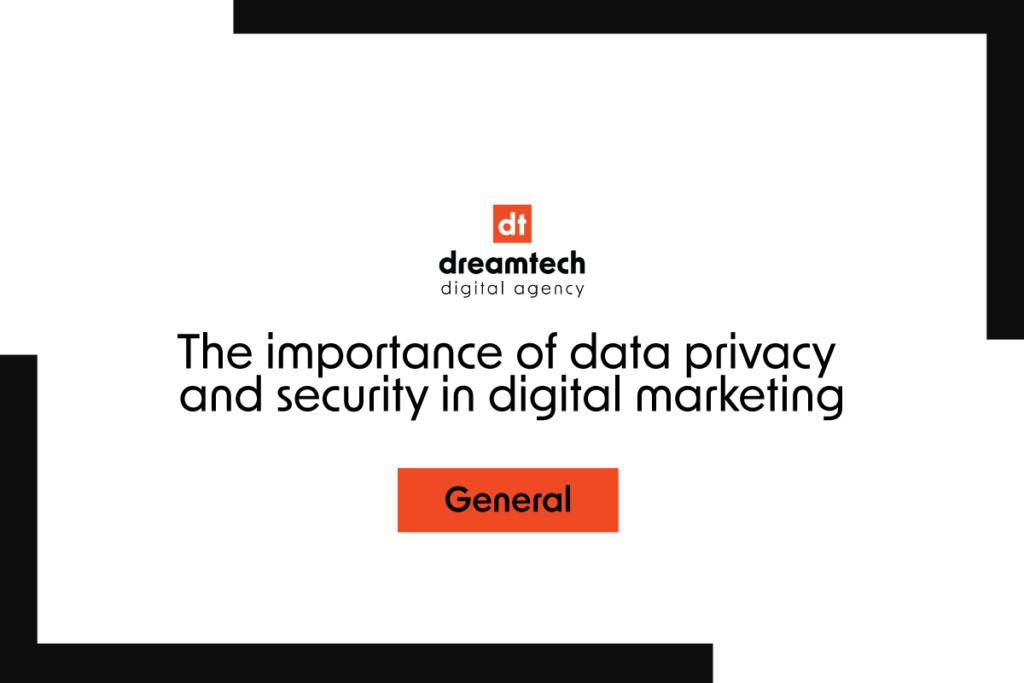In the digital age, data is everything. Digital marketing agencies, like Dreamtech, rely on data to create targeted campaigns and drive business growth. However, with great power comes great responsibility. The collection, storage, and use of consumer data raise concerns about data privacy and security.
As a digital marketing agency, it is crucial to prioritize data privacy and security to protect your customers’ data and earn their trust.
What is Data Privacy?
Data privacy refers to the right of an individual to control their personal information and how it is collected, used, and shared. It includes the confidentiality, integrity, and availability of personal data. Data privacy laws, such as the General Data Protection Regulation (GDPR) in the European Union, enforce strict guidelines for businesses that collect and process personal data.
In digital marketing, data privacy is essential for building consumer trust. Consumers are more likely to do business with companies that respect their privacy rights and use their data ethically. Therefore, digital marketing agencies must comply with data privacy laws and implement best practices to protect their customers’ data.

Why is Data Privacy so Important?
Data privacy is important because it protects individuals from identity theft, fraud, and other forms of cybercrime. According to the Identity Theft Resource Center, there were 1,108 data breaches in 2020, exposing over 300 million records. These breaches resulted in financial losses, reputational damage, and legal consequences for the affected businesses.
Furthermore, data breaches can erode consumer trust in a business. A survey by Edelman found that 81% of consumers would stop doing business with a company if it failed to protect its data. Therefore, data privacy is not only a legal obligation but also a competitive advantage.

How to Use Data Privacy in Your Digital Marketing?
To use data privacy in your digital marketing, you must first assess your current data privacy practices. Conduct a security assessment to identify vulnerabilities in your data collection, storage, and processing. Use encryption, firewalls, and other web security measures to secure your systems and data. Additionally, establish data retention and deletion policies to ensure that you are not storing unnecessary data.
Next, create a data privacy policy that informs your customers about how you collect, use, and share their data. Your policy should be transparent, concise, and easily accessible. It should also include information about how customers can exercise their privacy rights, such as the right to access, correct, or delete their data.
Finally, train your employees on data privacy best practices and establish protocols for data breaches. Your employees should be aware of the potential risks and consequences of mishandling customer data.

What is Data Security?
Data security refers to the protection of data from unauthorized access, use, or disclosure. It includes network security, application security, and endpoint security. Data security measures aim to prevent cyber attacks, such as malware, phishing, and ransomware and ensure the confidentiality, integrity, and availability of data.
In digital marketing, data security is essential for preventing data breaches and safeguarding customer data. Cyber attacks can result in data loss, financial losses, and reputational damage, which can have serious consequences for your business.

Why is Data Security so Important?
Data security is crucial because it protects businesses and customers from cyber-attacks. According to a report by IBM, the average cost of a data breach is $3.86 million. This cost includes expenses for investigation, notification, and recovery, as well as lost business and damaged reputation.
Moreover, cyber attacks can compromise sensitive information, such as credit card numbers, social security numbers, and health records. This information can be used for identity theft, fraud, and other malicious activities.
Therefore, data security is not only a legal obligation but also a business necessity. Businesses that prioritize data security are more likely to avoid costly data breaches and maintain the trust of their customers.

How to Use Data Security in Your Digital Marketing?
To use data security in your digital marketing, you must first identify potential risks and vulnerabilities in your systems and data. Conduct a security assessment to assess your network security, application security, and endpoint security. Use strong passwords, multi-factor authentication, and encryption to protect your systems and data.
Next, establish security protocols for your employees, such as regular password changes and secure file-sharing practices. Train your employees on how to identify and respond to cyber threats, such as phishing emails and suspicious activity.
Finally, regularly monitor and update your security measures to ensure that they are effective and up-to-date. Implement software updates, patches, and antivirus software to protect against new threats and vulnerabilities.

Examples of Successful Usage of Data Privacy and Data Security
Several companies have successfully implemented data privacy and data security measures to protect their customers’ data and earn their trust.
Apple
Apple uses end-to-end encryption to secure its customers’ messages, photos, and videos. Additionally, Apple’s privacy policy is transparent and easy to understand, which has helped it earn a reputation as a privacy-focused company.
Airbnb
Another example is Airbnb, which uses identity verification and secure messaging to protect its hosts and guests. Airbnb also has a transparent privacy policy that explains how it collects, uses, and shares personal data.
Salesforce
Finally, Salesforce, a customer relationship management (CRM) software company, has implemented robust security measures to protect its customers’ data. Salesforce uses encryption, access controls, and monitoring to secure its systems and data. Additionally, Salesforce’s privacy policy is transparent and detailed, which has helped it earn the trust of its customers.

Why Use Dreamtech to Help You with Your Data Privacy and Security?
At Dreamtech, we prioritize data privacy and security to protect our client’s data and maintain their trust. We have a team of experienced security professionals who can assess your systems and data and implement best practices to protect your data. Additionally, we can help you create a transparent and easy-to-understand privacy policy that informs your customers about how you collect, use, and share their data.
Here are four reasons why you should choose Dreamtech to help you with your data privacy and security:
- We have a proven track record of implementing data privacy and security measures for our clients.
- We use the latest security technologies and best practices to protect our client’s data.
- We prioritize transparency and communication to ensure that our clients understand how their data is collected, used, and shared.
- We provide ongoing support and monitoring to ensure that our client’s data is secure and compliant with data privacy laws.

Data privacy and security are essential for building consumer trust and protecting your customers’ data. As a digital marketing agency, it is your responsibility to implement best practices to ensure that your data collection, storage, and use are compliant with data privacy laws and ethical standards.
To improve your data privacy and security, conduct a security assessment, establish security protocols, and create a transparent privacy policy. Additionally, consider working with a trusted partner, like Dreamtech, to help you implement best practices and protect your customers’ data.
Book a call with our data privacy and security specialists today to learn how we can help you protect your customers’ data and maintain their trust. And don’t forget to subscribe to all of Dreamtech’s social media channels – Facebook, Instagram, LinkedIn, and Pinterest – to stay up-to-date on the latest digital marketing trends and best practices.













